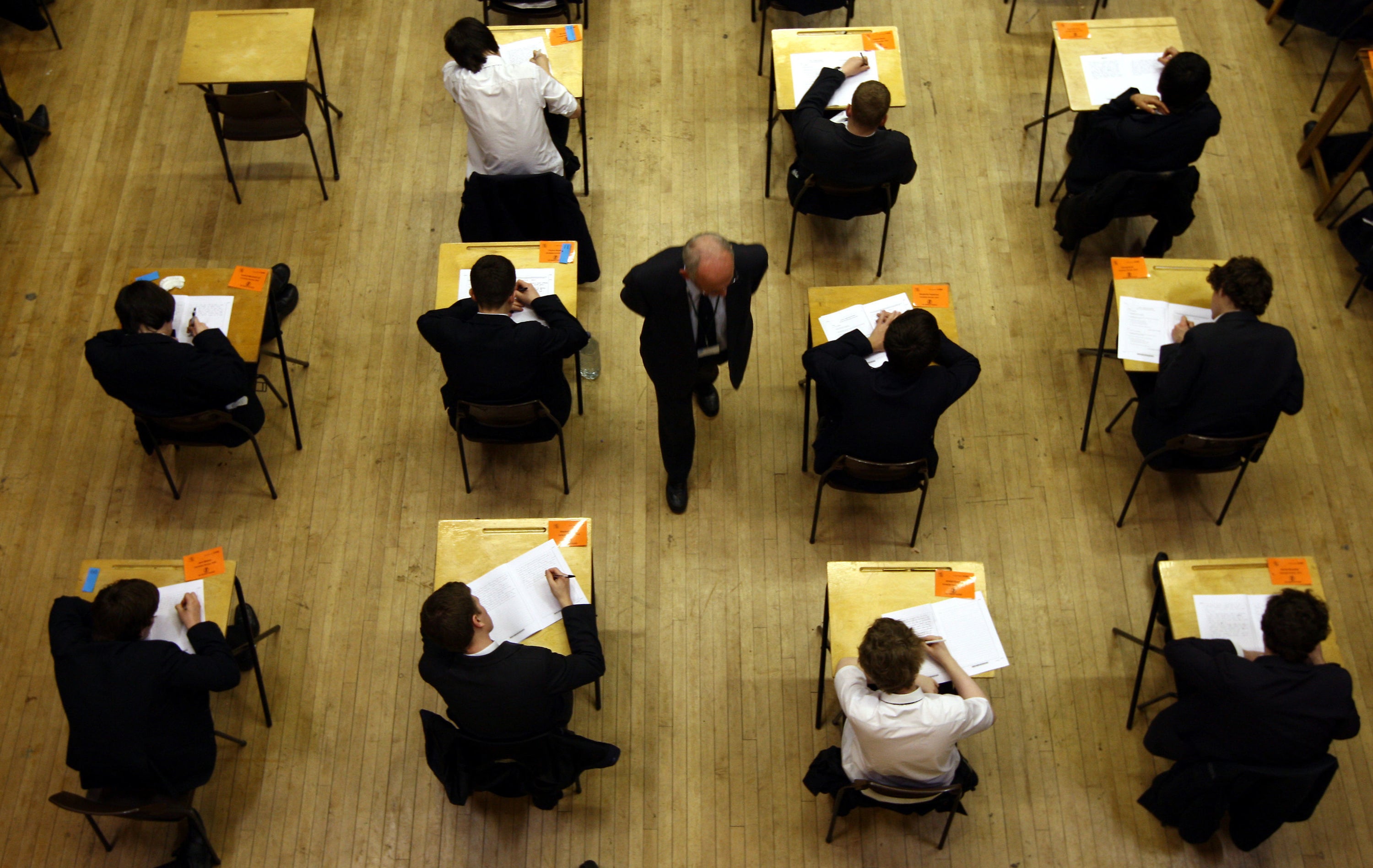
The number of pupil appeals to change their GCSE and A-level grades surged last year to nearly five times the number submitted in 2020.
In total, 17,490 GCSE, AS and A-level grades were challenged by pupils in 2021 compared to 3,570 the year before.
Exams regulator Ofqual said the sharp increase reflects “the different nature of the assessment and appeal arrangements in summer 2021”.
In 2020, pupils could not appeal against their grade directly to boards over teachers’ judgments of their grade, and appeals could only be made by schools on the grounds that a mistake had been made in the process of awarding a grade.
Most of the appeals challenged teachers’ academic judgment of pupils’ work, which were used to justify the grades awarded.
Nearly 5,000 GCSE grades were challenged over the teacher’s decision on the final grade, while 3,465 were challenged on the basis of the examples of a pupil’s work used to justify the grade awarded.
At AS and A-level, 4,245 were appealed on the basis of the grade awarded, and 3,065 challenged teachers on the selection of work they had chosen to justify a grade.
Under arrangements for exams in 2021, when teacher-assessed GCSE and A-level grades were awarded, every pupil had the right to appeal their grade.

Teachers submitted evidence of pupils’ work in support of the grades they were awarding, and had to make pupils aware of what examples of their work they were basing a grade on.
Pupils would have had the chance to confirm submitted examples were their own work, as well as making teachers aware of any mitigating circumstances that might have affected their performance.
The regulator added that owing to the exceptional nature of how exam grades were awarded last year, direct comparisons between years should be “treated with caution”.
In 2020, when public exams were cancelled because of the pandemic and teacher-assessed grades were awarded for the first time, the number of appeals of GCSE grades nearly tripled – to 2,215 in June that year compared with 745 in 2019.
In 2021, 9,180 GCSE grades were challenged, representing a 314% rise in GCSE appeals from the year before.
A total of 6,820 AS and A-level grades were challenged in 2021, compared with 1,355 the previous year.
The proportion of appeals upheld, where a pupil’s challenge led to their grade being changed, fell from the previous year, with 40% of GCSE appeals leading to a change of grade compared to 85% of appeals in 2020.
In total, 5,250 pupils had their GCSE or A-level grade changed in 2021 following an appeal. At GCSE, 77% of grades changed by one grade, and at A-level 80% of grades did.
Ofqual said the figures are provisional.
Geoff Barton, general secretary of the Association of School and College Leaders, said that schools had been presented with a “difficult task” when they were given responsibility for awarding grades to their pupils in 2021.
“Leaders and teachers stepped up to the plate admirably and did a fantastic job in extremely difficult circumstances, but it was inevitable that there would be more appeals than in normal years because the system for awarding grades was accompanied by a completely different and very accessible appeals process,” he said.
He added that it was “remarkable is that in these highly unusual circumstances such a small proportion of grades were challenged”, with just 0.3% of 6 million GCSE, AS and A level grades awarded appealed, while just 0.1% of grades were changed following an appeal.
“This is testimony to the professionalism of teachers, who used their skill, judgment and knowledge of their students’ ability to ensure they received accurate grades in the vast majority of cases,” he said.
Mr Barton said that Education Secretary Nadhim Zahawi had been “emphatic” in recent statements that exams would go ahead in 2022 and said that he looked forward to advance information about the exams, released on February 7, to mitigate the impact of the coronavirus pandemic on pupils’ education.
Kevin Courtney joint general secretary of the NEU teaching union, said: “To keep this in perspective, unreasonable academic judgment was the only available grounds for appeal other than if there was a procedural error, so with low numbers of errors, it becomes majority by default.”
“Even so, we are still talking about a very small number of appeals as a proportion of total grades.
“Only 0.3% of all grades were appealed, so 99.7% of grades were not.
“Only 0.1% of all grades were changed, so 99.9% of grades were not.”
“The data suggests both students and the exam boards felt that the academic judgement displayed by teachers was exceptional.”


.png?w=600)




